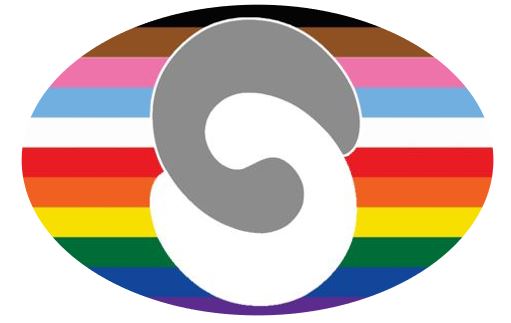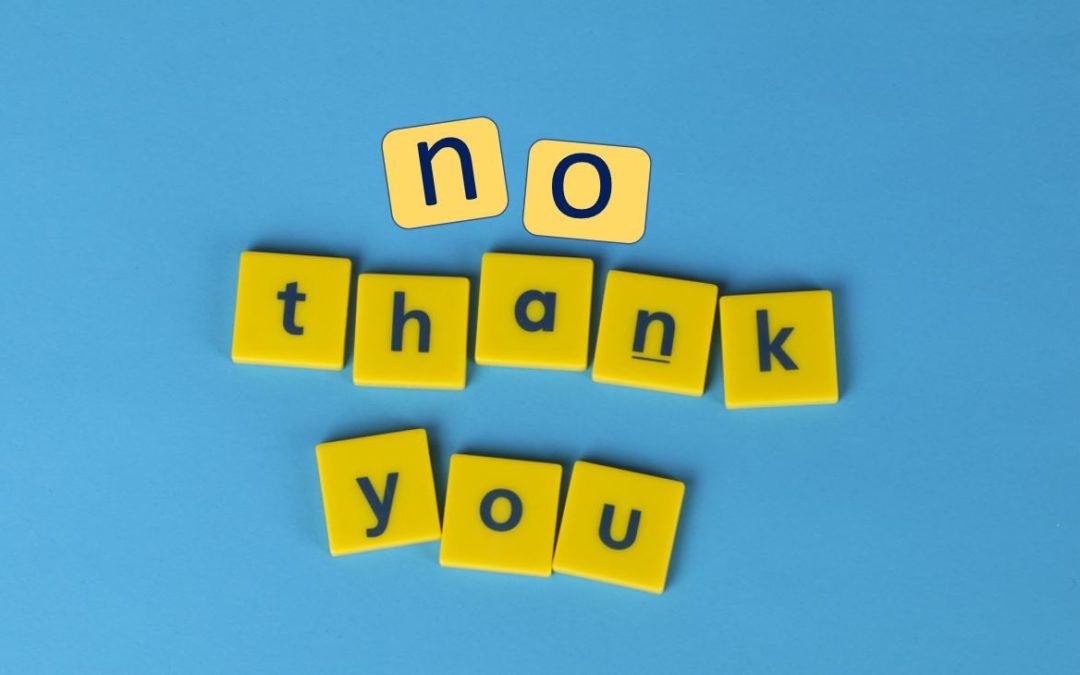A core guideline at Cuddle Sanctuary workshops is that we respect others’ boundaries with enthusiasm. To practice this, we run a quick “No thank you” exercise at every workshop. It goes like this:
Person A: Makes a request like “Would you like a hug?”
Person B: “No thank you.”
Person A: Responds with something kind such as “Thank you for taking care of yourself.”
It’s a simple activity, but can have such a profound impact.
The Practice of Saying and Receiving “No”s
I’ve used Cuddle Sanctuary workshops as a place to work on embodying consent in my life and have been practicing my “No thank you” for nearly 2 years now. While the exercise itself comes as second nature, in real-time practice, I still have a little work to do.
For example, just yesterday at a cuddle I was leading, I got two different offers to spoon and I said “No thank you” to each one. A twinge of guilt came up for me. It was partially because I felt some embarrassment around being a professional cuddler who isn’t in the mood to spoon. Additionally, as the workshop leader, I also feel a responsibility to provide attendees with the experience they’re hoping for. The thought crossed my mind that if I turned down the offer, I’d be compromising their experience somehow.
And yet, time after time, in every instance where I’ve said “No thank you” to anything that isn’t a “Hell yes!”, I’ve received kindness, gratitude, and encouragement in return. It has an instantaneous effect in dispelling any guilt or discomfort that comes up. The enthusiastic response of “Thank you for taking care of yourself” validates my needs and my desires as important too. Instead of being shamed, I am rewarded for communicating my boundaries.
A Culture of Consent
Notice that the the response I receive isn’t “Are you sure?” or “Oh, it’ll only be for 5 minutes!” or anything that is meant to coerce me into changing my mind. Such responses can be so common in our everyday life, especially in a culture built on personal gain. It teaches us to be persuasive, or tactfully pushy to get our way. On the other hand, mutual fulfillment and trust are the cornerstones of consent culture. You can trust me to know and communicate what I want or don’t want. I can trust that you’ll do the same. Here, both our needs are equally important. When we come together, we can connect knowing that my receiving something I want doesn’t come at a cost to you, and that you are finding equal satisfaction in it as well.
The “sanctuary” in our events can come in the form of touch and human connection. It can also come from the potency of a consent-rich environment. It creates such a baseline of trust and safety that fills each individual with empowerment. All from the simple phrase, “Thank you for taking care of yourself”.


I would like to think we can do better in a Non-Violent Communication manner? Realizing that I am a white male so do not know what it is really like to be otherwise… Please be gentle… My thoughts…
I continue to try and find better alternatives to “No thank you.” I would prefer a NVC method that shows compassion and empathy for the person for making the request as well as expressing what my own needs/desires.
Thank you for asking.., or I appreciate your taking the time to ask me…, etc… are good starters and then possibly repeating/reflecting what you heard as the request. I would then follow with what I would like with or without an explanation before/after.
Person A: Makes a request like “Would you like a hug?
Person B: “I appreciate you asking if I wanted a hug, Thank You. (My shoulder is hurting) Would a hand shake be OK?”
or
“Thank you for asking if I wanted a hug. I am not comfortable with that right now, would you be willing to let me be by myself?
Obviously there are times when a strong firm NO is appropriate, but I’d like to think that is less common with people who ask in the first place rather then just “diving in” for the hug.
In the case where “No Thank you is used”, I am not a big fan of the “Thank you for taking care of yourself” either. It may have its place, but again is not as compassionate/empathetic as I would like or really acknowledge the communication and grammatically/etiquette wise, thanking someone for a thank you, even a “No” one is kind of weird.
As Person A, regardless of person B’s response, I would prefer to appreciate their considering the request and maybe leave open the option for further communication.
Something like: I appreciate you considering my request and respect your choice, if you would like to talk or do something else, please feel free to let me know.
What do you think?
Hi Dean – thanks for sharing the Non-Violent Communication techniques! I like for students to experiment and find ways to express themselves that feels just right for them. This is really valuable information. Thank you for taking the time to describe it for me and our readers. : – )
And I LOVE your opinion about “Thank you for taking care of yourself.” I appreciate your perspective and hope that if others at a workshop have a different preference, that you’d respect their style, too. I feel confident that you would!